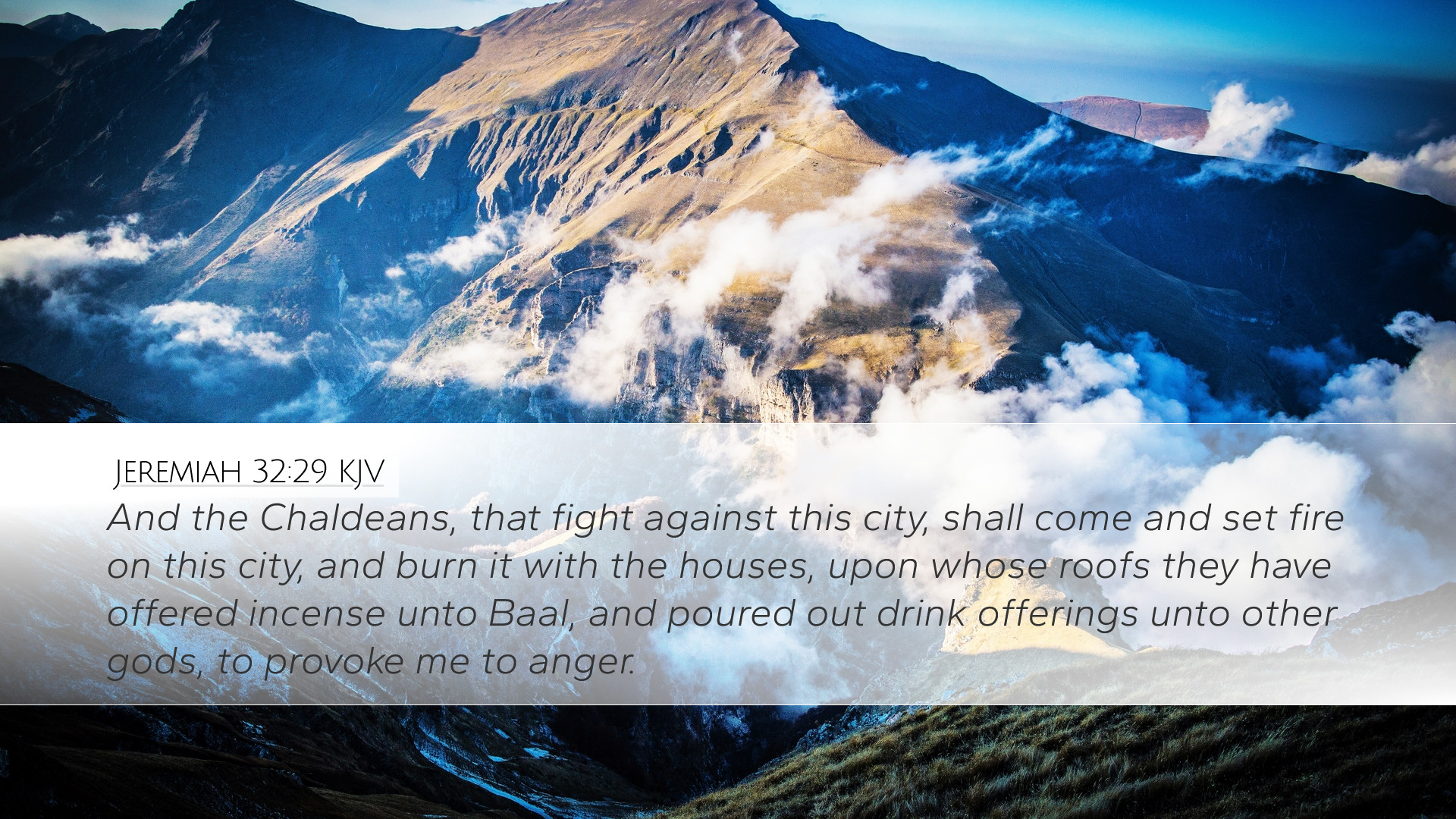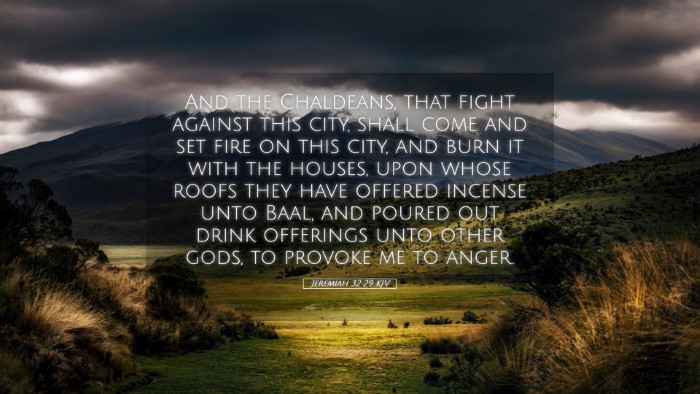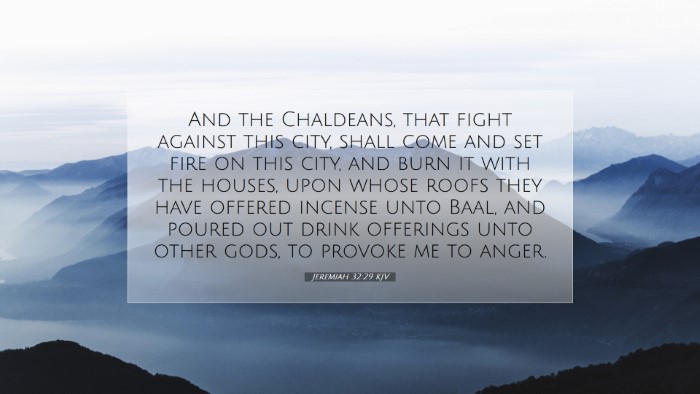Commentary on Jeremiah 32:29
Verse: "And the Chaldeans, that fight against this city, shall come and set fire on this city, and burn it with the houses, upon whose roofs they have offered incense unto Baal, and poured out drink offerings unto other gods, to provoke me to anger." (Jeremiah 32:29, KJV)
Introduction
This verse is a vivid portrayal of impending judgment upon Jerusalem, embodying a critical moment in the prophetic ministry of Jeremiah. As with many prophetic declarations, it serves as both a warning and a reminder of the consequences of Israel’s covenant unfaithfulness. This commentary draws upon insights from Matthew Henry, Albert Barnes, and Adam Clarke to dissect the theological implications and historical context of this profound declaration.
Historical Context
The context of Jeremiah 32:29 is set during the Babylonian siege of Jerusalem. The Chaldeans, synonymous with the Babylonians, are depicted as agents of divine judgment against a city that had repeatedly turned away from God to worship false idols, particularly Baal. Thus, this passage does not merely foreshadow destruction; it encapsulates the theme of divine justice against idolatry.
Insights from Commentaries
-
Matthew Henry:
Henry emphasizes the city's sin of idolatry, specifically the act of making offerings to Baal atop their roofs, a symbolism of open rebellion against Jehovah. He highlights that the sin is not just individual but collective and systemic within the society, warranting severe judgment. Mindfulness of their transgressions was expected, and their failure to repent resulted in dire consequences.
-
Albert Barnes:
Barnes focuses on the consequences of the Chaldeans’ assault as unavoidable due to the deep-rooted idolatry. The act of "setting fire" serves as a metaphorical and literal destruction of both physical structures and the spiritual state of the people. He points out that the offerings made on the roofs reveal a pervasive and unrepentant heart, setting the stage for God’s righteous anger.
-
Adam Clarke:
Clarke notes the significance of "houses upon whose roofs they have offered incense," indicating both the blatant worship of idols and the neglect of true worship. He emphasizes that this behavior provokes God's anger, leading to catastrophic repercussions. Clarke urges readers to reflect upon their worship and align it with the truth of God’s revelation.
Thematic Elements
This verse encapsulates several key themes prevalent throughout the prophetic literature of the Old Testament:
- Judgment: The prophecy underscores God's judgment upon Jerusalem for its covenant violations. The phrase "shall come and set fire" signifies both a literal destruction of the city and a spiritual cleansing.
- Idolatry: The reference to burning incense and offering drink offerings to other gods illustrates the people's abandonment of Yahweh, highlighting the seriousness of idolatry as a major offense against God.
- Divine Sovereignty: The invading Chaldeans, despite being agents of destruction, are ultimately under the sovereign will of God, fulfilling the prophesied judgment against His wayward people.
Theological Implications
From a theological standpoint, Jeremiah 32:29 urges a serious examination of how the faith community handles the sin of idolatry in its many forms. The verse serves as a cautionary reminder of the consequences of forsaking God’s commandments and the seriousness of engaging in worship practices not aligned with biblical teachings.
Lessons for Today
1. Accountability to God: The people of Jerusalem were accountable for their worship practices. Today, believers must examine whether their worship aligns with biblical truth or is influenced by contemporary ideologies that could provoke God's displeasure.
2. The Cost of Idolatry: Just as the ancient Israelites faced judgment for their idolatrous practices, modern believers are cautioned about the subtle idols in their lives, including materialism, secular ideologies, or anything that takes precedence over God.
3. The Call to Repentance: This passage emphasizes the need for a collective and personal return to authentic worship practices, urging believers to seek restoration through genuine repentance.
Conclusion
Jeremiah 32:29 serves as a poignant reminder of God’s judgment against unfaithfulness and a call back to sincere worship. By examining this text through the lenses of respected commentators, we derive rich insights that challenge and encourage contemporary faith communities to reflect on their relationship with God. The prophetic word carries with it not only foreboding warnings but also the gracious invitation to return to a right relationship with the Creator.


